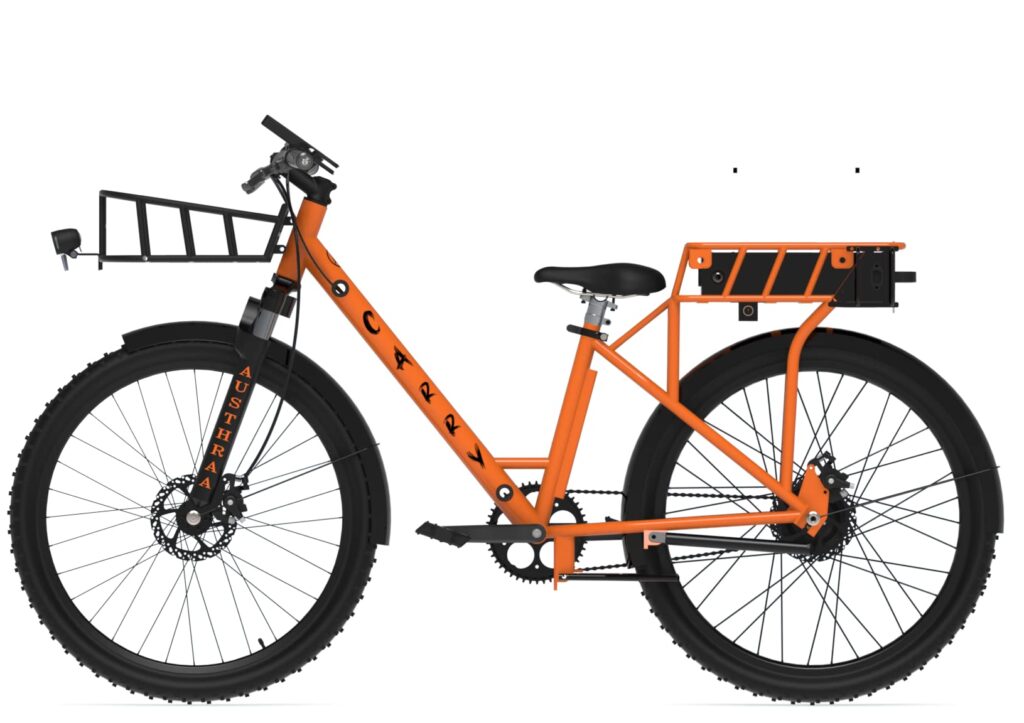
In an era where sustainability and efficiency are paramount, the transportation industry is undergoing a revolution. One of the notable players in this transformative wave is the cargo electric bike. This innovative mode of transportation is changing the way goods are delivered in urban environments, offering a blend of eco-friendliness, cost-effectiveness, and practicality.
1. The Eco-Friendly Revolution
Traditional delivery methods, often reliant on gas-guzzling vehicles, contribute significantly to air pollution and carbon emissions. Cargo electric bikes emerge as a breath of fresh air in this scenario, quite literally. Operating on clean, electric power, these bikes produce zero emissions during their deliveries. As cities around the world grapple with air quality issues and strive to meet sustainability goals, cargo electric bikes provide a sustainable alternative for last-mile delivery services.
2. Last-Mile Efficiency
The term “last mile” refers to the final leg of the delivery journey, from a distribution hub to the destination. This phase is notorious for its inefficiency and environmental impact. Traditional delivery trucks struggle with congestion, limited parking, and navigating through dense urban areas. Cargo electric bikes, however, easily maneuver through traffic, access tight spaces, and find parking with ease. This results in faster and more efficient last-mile deliveries, reducing both the environmental footprint and the operational costs associated with traditional delivery methods.
3. Economic Benefits for Businesses
Businesses are always in pursuit of cost-effective solutions, and cargo electric bikes align with this goal seamlessly. With lower operational costs compared to traditional delivery vehicles, businesses can optimize their delivery networks. Electric bikes require minimal maintenance, and the cost of electricity for charging is often significantly lower than fuel costs. Additionally, many governments offer incentives and subsidies for businesses adopting eco-friendly practices, providing an extra push for the integration of cargo electric bikes into delivery fleets.
4. Adaptability to Urban Landscapes
Urban landscapes pose unique challenges for delivery services. Traffic congestion, limited parking spaces, and the need for quick turnarounds are constants in the urban environment. Cargo electric bikes, designed with agility in mind, can navigate through crowded streets, alleys, and bike lanes. Their compact size allows for easy parking, and some models are equipped with cargo compartments capable of accommodating a substantial volume of goods. This adaptability makes cargo electric bikes an ideal solution for the dynamic and often chaotic nature of urban logistics.
5. Enhanced Accessibility and Reduced Congestion
Cargo electric bikes contribute to reducing traffic congestion, a persistent issue in urban areas. With their ability to bypass traffic jams and find alternative routes, these bikes not only expedite deliveries but also contribute to a smoother flow of traffic. The reduced reliance on large delivery trucks for last-mile services means fewer vehicles vying for limited road space, easing congestion and improving overall urban mobility.
6. The Tech Behind the Cargo
Modern cargo electric bikes are not just about pedaling with an electric assist; they incorporate cutting-edge technology. GPS tracking, smart route optimization, and integrated communication systems are becoming standard features in these bikes. These technologies enhance the efficiency of delivery operations, providing real-time tracking for both businesses and customers. The integration of technology not only streamlines the delivery process but also offers a level of transparency and accountability that is crucial in the age of e-commerce.
7. Challenges and Future Prospects
While the adoption of cargo electric bikes is growing, there are challenges to address. Infrastructure development, including dedicated bike lanes and charging stations, is essential for widespread implementation. Regulatory frameworks also need to evolve to accommodate this emerging mode of transportation. However, as cities invest in sustainable infrastructure and regulations catch up with technological advancements, the future looks promising for cargo electric bikes.
Conclusion
The cargo electric bike represents a compelling solution to the pressing challenges of urban logistics. It is a testament to how innovation, sustainability, and efficiency can converge to reshape an industry. As more businesses recognize the economic and environmental benefits of adopting cargo electric bikes, we can anticipate a future where the hum of electric motors replaces the roar of traditional delivery trucks, contributing to cleaner air, less congested streets, and a more sustainable urban environment.
Also Read: Best Bike Rack Solutions for Electric Bikes